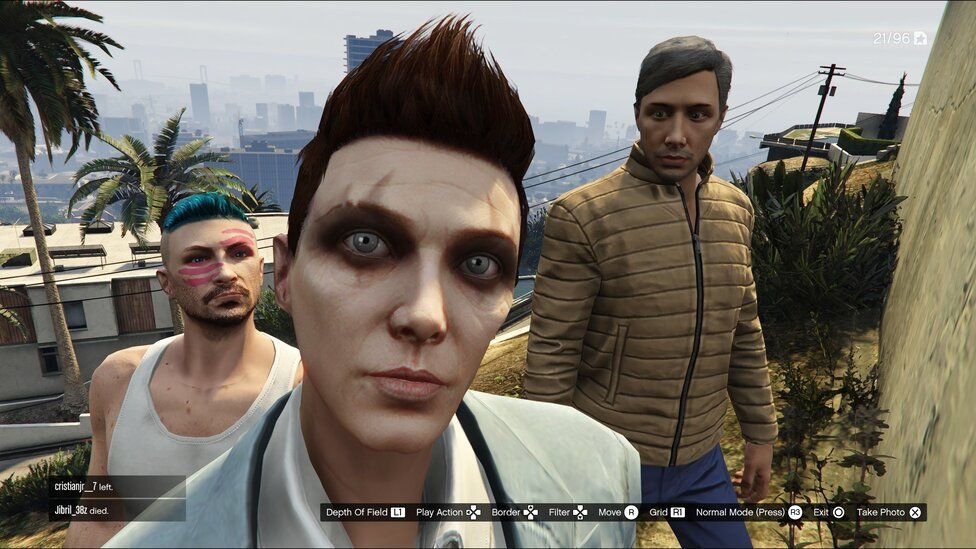Oak Cliff Film Festival '24 Friday: Vulanizadora and The Vourdalak
- Brock Kingsley
- Jun 23, 2024
- 3 min read
A brief review of two standout features from Friday's Oak Cliff Film Festival


Vulcanizadora (dir. Joel Potrykus)
Two friends go for a hike in the woods somewhere outside Grand Rapids Michigan. We see their faces in close-up, the camera tracks them as they walk, and Pantera plays loud—the music, frenetic, loud, stands in contrast to the perceived calm of nature. One friend, Derek, has come prepared: proper boots and pants, sun protection, a hiking backpack loaded with everything they’ll need. The other friend, Marty, has not: sneakers, jeans, t-shirt, a nylon bag on his shoulders, sweatshirt around his waist. Derek stops mid-stride, so does the music, “I forgot my keys on the bus,” he says. Marty looks at him, his face blank, “It doesn’t matter,” he tells him. Derek has a child’s sense of wonder: everything is amazing, worth looking at and exploring. Marty is sullen: a sad sack who mopes around and can’t be bothered with the trivial things that excite Derek.

This walk in the woods is for a specific purpose; it’s not a hike for leisure or exercise or for spending time with a friend. Nothing is said out loud, but there are hints along the way. These friends can’t (or won’t) articulate what they plan to do once they reach their destination. They talk around it; but soon enough we get it.

Two friends walk into the woods, their destination the shores of Lake Michigan. We finally see and feel the full weight of what they’ve come to do. Only one friend returns to Grand Rapids.. For a lesser filmmaker, this would’ve been the whole film. But director Joel Potrykus shows us the aftermath, makes us sit with what comes next. Makes us contemplate friendship and guilt and the various faces of depression. It can be a lonely world. If Marty felt that way at the beginning of the film, he feels it even more after the trip. Before the big bang moment, Derek speaks about Hell: “Can you imagine: a world where everyone is sad and nervous…all the time?” Marty can, and I think the rest of us can, too.
The Vourdalak (dir Adrien Beau)
All vampire films might as well be considered postmodern pastiche. Pasting together multiple elements and styles as an homage, or sometimes parody of past styles. All in the service of making commentary on the chaotic nature of our postmodern society. And don’t forget nostalgia. Adrien Beau, director of The Vourdalak, is not unaware of this, and he even raises the stakes (sorry) in his lush, vintage debut. Beau’s story is based on the novella by Aleksey Konstantinovich Tolstoy (a relative of Leo) first written in 1839. Tolstoy’s creatures pre-figure Stoker’s Dracula, (a character in the film even jokes that “next you’re going to tell me you believe in vampires.”) the word first occurs in Pushkin’s early 19th century work and trades on Balkan and Slavic vampire/lycan lore. This dreamy nightmare deals with folklore where the curse of the Vourdalak demands the victims be loved ones, ensuring the destruction of not just a family, but a bloodline.

After his carriage is wrecked and his escort is killed by bandits, the Marquis d’Urfe seeks aid at the estate of Old Gorcha. At the estate he encounters Piotr and his sister Sdenka, their elder brother Jegor returns soon after the Marquis’ arrival. When Jegor asks after their father, Sdenka, the beautiful young women who immediately attracts the attention of the Marquis, tells him he’s gone to fight the Turks, and if he’s not returned in exactly (to the hour) six days time, the family should not let him in the house because he’s turned into a Vourdalak. At the prescribed hour, Old Gorcha (rather his emaciated form) is found on the edge of the property.

Beau’s film is creepy, ethereal, and a pleasure to watch. Shot on 16mm and using practical effects, it renders the danger at once otherworldly and humorous. As metaphors go, Beau’s look at the vampire leans into the dangers of the patriarchy—especially to those the patriarchy purports to love and protect. The nature of control—who’s being controlled and how—itself is rendered as a visual metaphor. The film also questions the perils of love, what it requires, what one has to sacrifice—do we really only hurt the ones we love? The fact that no one runs screaming throughout this film, tells us how much they are willing to risk and why.
Brock Kingsley is a writer, artist, critic, and educator living in Fort Worth, Texas. His work has appeared in publications such as Brooklyn Rail, Paste Magazine, Tahoma Literary Review, Waxwing, and elsewhere. He is a regular contributor at the Chicago Review of Books.



Comments